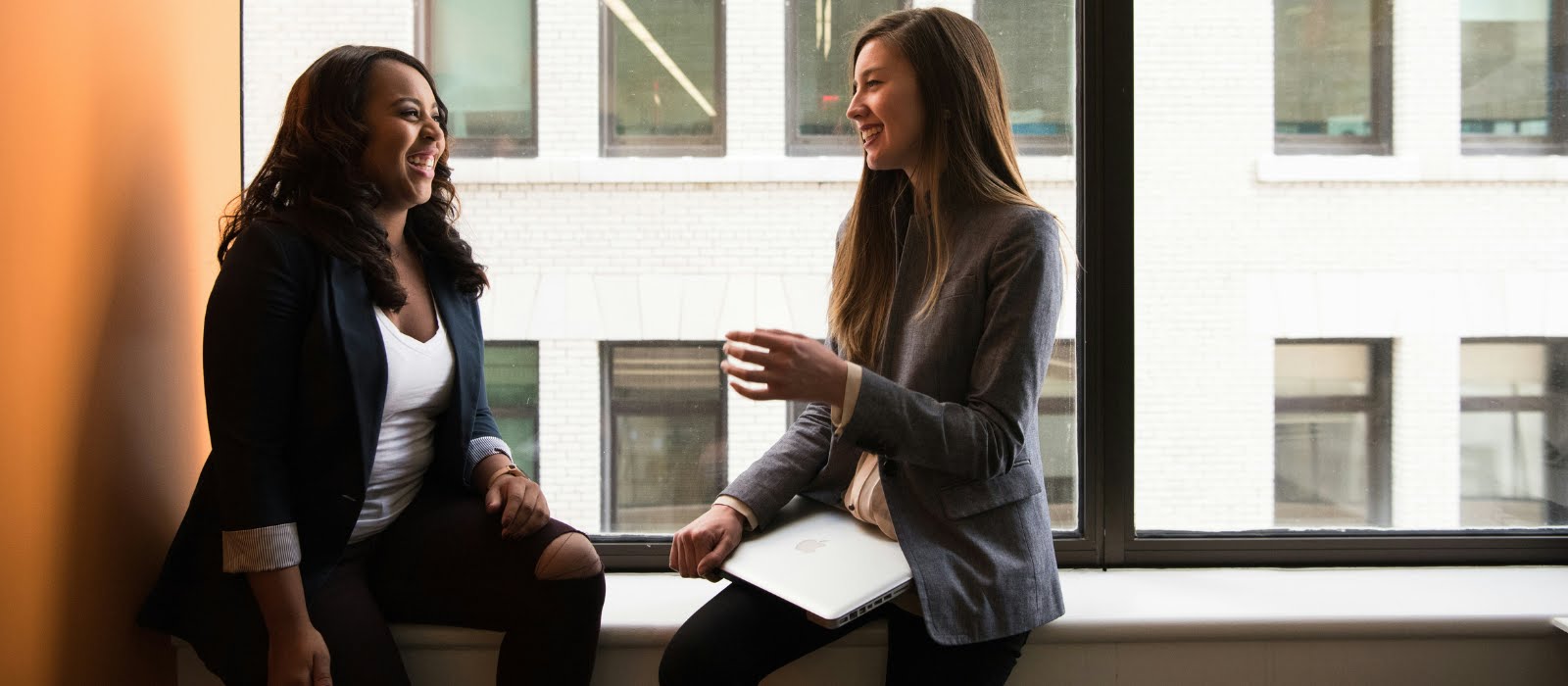Unsplash
Has the culture of confidence created a no-win scenario for women at work?
The definition of confidence in the workplace has become so skewed by gender roles, it’s created a no-win scenario for women at work.
“Just act more confident.”
This simple phrase is often shared as a nugget of professional wisdom to women across all sectors. On reflection, it encapsulates the majority of professional advice given to me over the past two decades. It has come from the mouths of colleagues and leaders; leapt from magazine pages and the endless scroll of Instagram; and it’s a phrase I have repeated to myself before many important meetings.
With a welcome increased emphasis on inclusive workplaces and gender balance across senior leadership roles over the past decade, there is no shortage of surveys that conclude the following: women lack confidence. It is pointed to as a reason why women “don’t reach the top”; don’t get equal pay; don’t make it to the boardroom table; don’t apply for the promotions; and don’t get heard. But surely it’s not this simple?
Complexity arises, however, in how we have come to use the word “confidence”. According to best-selling author Lisa Sun, confidence has come to mean something other than its dictionary definition. “When we talk about confidence, it is described as being assertive; about speaking up; about bravado and standing up on a stage,” she says. “It is very behavioural… and it is the wrong definition,” she explains in her book, Gravitas. This usage means that despite confidence being ostensibly a gender-neutral concept, it has become gendered in how we define it.
Research published last year found that as well as being gendered, confidence is also being “weaponised against women”. Sharing the findings in the Harvard Business Review, co-researcher Dr Darren Baker, then an assistant professor at the UCD Michael Smurfit Business School (now a professor in Melbourne), said: “When women fail to achieve career goals, leaders are prone to attribute it to a lack of self-confidence. And when women demonstrate high levels of confidence through behaviours, such as being extroverted or assertive, they risk overdoing it and, ironically, being perceived as lacking confidence… No matter the outcome, women’s lack of career progression is blamed on them, an attack they share with other underrepresented groups.”
The research findings, which were based on in-depth interviews carried out in the UK, relate to the concept of “confidence culture”, the gendered cultural phenomenon that promotes women seeking change within themselves, rather than in the structures or institutions around them. In short, it implies that women’s lack of confidence in the workplace is internal, rather than environmental.
Michelle O’Keeffe, co-founder of Platform 55, which assists companies to engage, retain and attract talent and support parents in the workplace, speaks passionately about both the concept and culture of confidence. “When I hear that ‘women lack confidence’, it makes me think of men looking out the boardroom window thinking about how they can ‘fix’ females. But that is not the answer,” she says.
“We do not need male-dominated boards asking: ‘What’s wrong with the females?’ ‘How can we train them and coach them to be more confident?’ Where is the organisation that has a largely male board, or executive team, asking: ‘Should we look at this boardroom – all of us in here – and see what the challenges are in here? What are our biases? What are we doing wrong that means we do not have more females in here? What are the barriers in this broken structure that have been here too long and that are heavily biased towards the male?’
“It is the board – or senior teams – who often need the training, not the females,” she says, highlighting the impact of “throwaway comments” made by senior leaders. “We’ve been told about comments such as ‘she’s going on a baby holiday’, for example. You wouldn’t believe the impact that some of those throwaway comments have on someone’s sense of self-belief,” she says.
As a coach who focuses on the area of confidence, confidence culture is a hot topic for Sarah Doyle, founder of the Better Life Project (@sarah_thebetterlifeproject). “I fully recognise that there are some very profound changes that need to take place in our society to ensure that women and men are treated equally throughout all aspects of their life, including their careers,” says Doyle, who is one of the panel coaches available to members of the IMAGE Business Club.
Doyle makes the important distinction, like Sun, that brings confidence back to the feeling of self-belief, which comes ahead of any type of outward behaviour, whether that is being assertive or influencing more quietly by example. “We cannot stop trying to empower women to become more confident. Because to that one woman, feeling more confident can support them to make incredible changes in their life – to ask for that pay rise, to promote themselves, whatever it might be. You can’t tell any one woman that’s not important,” she says.
Working in what is still a male-dominated sector of the legal profession – commercial real-estate – Marie O’Riordan, partner at Eversheds Sutherland in Dublin, recognises the importance of self-belief in your professional ability. “Coming out of college and into professional services, many females might have felt the need to adapt to the traditional male approach to a job because that was simply the norm at the time,” she explains. “However, as you grow in your career, so too does your confidence in how you do your job. With experience you learn what you are good at, what you can do. You learn to trust that… and you learn that you are not alone in feeling self-doubt at times,” she says, sharing a quote she recently heard on a podcast, that “success does not insulate you from self-doubt”.
When it comes to gendered mindset distinctions, Sun identifies a female tendency to have a “negativity bias” as an important influence on feeling confident. To tackle this temptation of focusing on what you cannot do as opposed to what you do well, O’Riordan advises learning what your strengths are and playing to them, something she encourages in her team at Eversheds Sutherland. “Of course, you can work on your weaknesses, but I think there are more benefits to actually working on your strengths,” she says. “To do that, first you need to learn what they are – write them down, take note of when you get positive feedback. Store it and actively check it every so often.”
When faced with the evidence of sustained inequalities towards women and minorities, it’s a case of fostering one to breakdown the other. True confidence can go some way to impacting the culture of confidence, but it is not something that women alone can tackle. As Sun describes it, there is still a success and confidence “scorecard that was not designed by, or for us”.
Ideas to boost your self-belief
Keep a success log. Take note of any positive feedback you get or when you manage something well at home or at work. Be specific with the details. Check it regularly, update it and try to foster those qualities.
Take action. Self-belief comes from action – instead of waiting for the confidence to take action, Sarah Doyle advises taking one step today. Look for jobs where your skillset is championed, or try to shape your current role into something that better works for you, and by extension, your company.
Concentrate on your strengths. Tap into memories of times you felt confidence within you or when you really buzzed with self-belief. What strengths were you using in those moments? What strengths do you bring to your life every day? Write them down and actively work on improving them even further.
Ban overusing the words “I’m sorry”. If you are someone who routinely apologises for things that are not worthy of an apology, challenge yourself to change your narrative. Instead of saying “I’m sorry I am taking so much of your time on this”, say “Thank you for giving me your time on this”. It’s less about how others perceive you and more about how you perceive yourself.
Imagery via Unsplash.
IMAGE Winter 2023
This article originally appeared in the winter 2023 issue of IMAGE Magazine.
Have you thought about becoming an IMAGE subscriber? Our Print & Digital subscribers receive all four issues of IMAGE Magazine and two issues of IMAGE Interiors directly to their door along with access to all premium content on IMAGE.ie and a gorgeous welcome gift worth €60 from The Handmade Soap Company. Visit here to find out more about our IMAGE subscription packages.
























